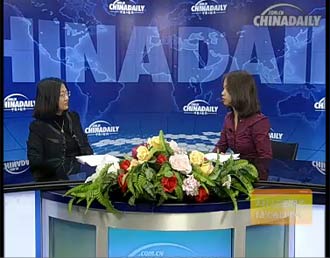Move against online rumors aims at protection of Internet users' interests
Updated: 2013-09-06 16:54BEIJING -- China's resolve to crack down on online rumormongers shows its desire for a healthy Internet.
Users' freedom of speech is unlikely to fall victim to the move, experts have said.
China's Internet community, especially Sina Weibo, has become an important channel for citizens to express views and expose corruption and abuse of power.
Over the past month, police across China have detained a number of suspects and closed several businesses for fabricating online rumors, prompting concern about freedom of expression.
Qiao Xinsheng, director of the research center for social development at Zhongnan University of Economics and Law, said freedom of speech does not mean freedom to disseminate disinformation. To say whatever one wants to say is a misinterpretation of freedom of speech.
Tian Zhihui, a professor from the Communication University of China who focuses on Internet Communication, believes freedom of speech should be exercised as stipulated by the law.
According to article 51 of China's Constitution, "citizens of the People's Republic of China, in exercising their freedoms and rights, may not infringe upon the interests of the state, of society or of the collective, or upon the lawful freedoms and rights of other citizens."
If freedom of speech is abused, or if people think they can serve their personal interests by defaming, slandering, or framing others as they please, more citizens' legitimate interests will be hurt, according to Qiao.
The truth will be overwhelmed and ignored if the Internet is flooded with rumors and slander, he said.
Police have found rumormongers fabricating false information to attract attention and make profits.
In August, Beijing police detained Yang Xiuyu, founder of the Erma Company, and employee Qin Zhihui, for fabricating online rumors and harming the reputation of others.
The two men created misleading information including suggesting that the government had granted 200 million yuan ($32.7 million) in compensation to a foreign passenger who died in a bullet train accident in 2011. The rumor was reposted 12,000 times in two hours and ignited the ire of Chinese Internet users.
The two men posted false information about Lei Feng, the country's most famous Good Samaritan. They accused the former model of leading a decadent life. The post quickly spread online and was reported to the police by netizens.
Through the fabrication of "hot topics" online, Qin Zhihui's Weibo account could attract more followers and become a platform for business activities, Qin admitted after his detention.
Online rumors mislead the public and disrupt social order, said Qiao Xinsheng.
If not controlled, these rumors will undermine the role of the Internet to increase social transparency and hamper the dissemination of information, he said.
Shen Yang, professor with the Computer School of Wuhan University, believes information disclosure is a fundamental way to tackle online rumors.
To tackle online rumors, Shen advocates promotion of information transparency among government departments, the enforcement of law in filtering online rumors and more public supervision.
Guiding public opinion is as important as government supervision, said Tian Zhihui, the CUC professor, who believes laws shall play an important role in regulating online rumors.
"The government should let the people know that they can say whatever they want as long as their remarks do not run contrary to facts and violate the law," she said.























